Poets from China and Latin America unite, exchanging words, heritage and shared inspiration spanning continents
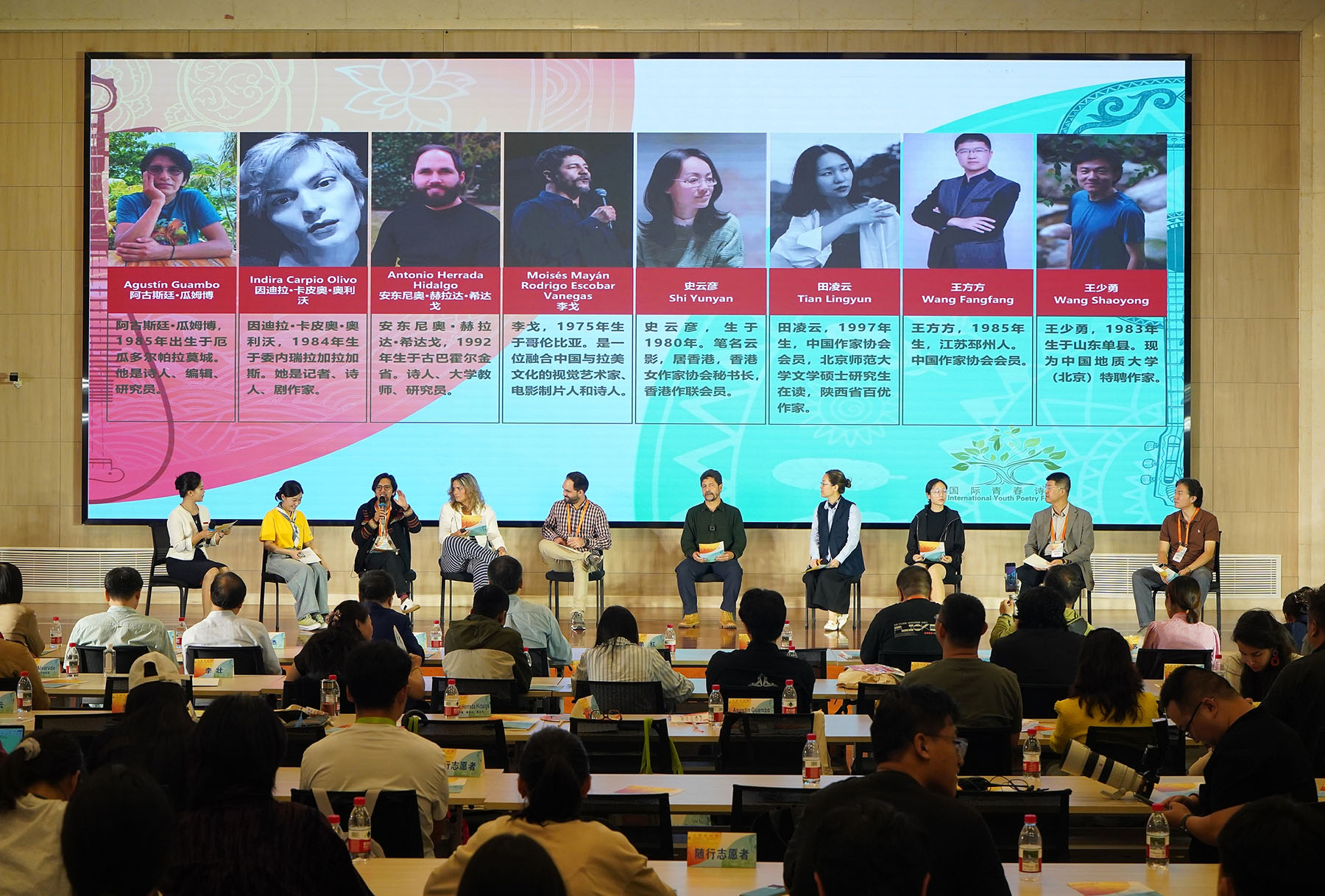
As the G58 high-speed train raced from Xi'an in Shaanxi province to Beijing on the afternoon of Sept 18, a lively poetry reading took place in one of its carriages.
It was spontaneously staged by a group of Chinese and Latin American poets, marking the end of their four-day journey to Shaanxi for the 2025 International Youth Poetry Festival — Special Session for China-Latin American Countries, as they headed to the festival's second leg in Beijing.
The event, one of the largest in the exchange of Chinese and Latin American literature, brought together 40 poets from 15 Latin American and Caribbean countries with 37 Chinese counterparts. From Sept 15 to 21, they participated in a range of activities, including visiting cultural landmarks, engaging in poetry readings and impromptu improvisations, and holding academic discussions.
"I've enjoyed the festival in so many ways. China's kindness and its hospitality are as ancient as its architecture. I marvel and feel small in China. It's so vast, so vast, like Latin American jungles, like the sunset on the beaches of Mexico," Mexican poet Roberto Acuna told China Daily during the train ride.
ALSO READ: Going back to her roots
"But what I've loved most are all the people who have helped us, assisted us, and looked upon us with affection. In Xi'an, my heart broke when I said goodbye to them."
Although it's the Mexican poet's first time visiting China, Acuna, who is also a professor at the National Autonomous University of Mexico, composed a long poem, Larga Noche a Li Bai (Long Night to Li Bai), inspired by the Tang Dynasty (618-907) poet better known in Latin America as Li Po.
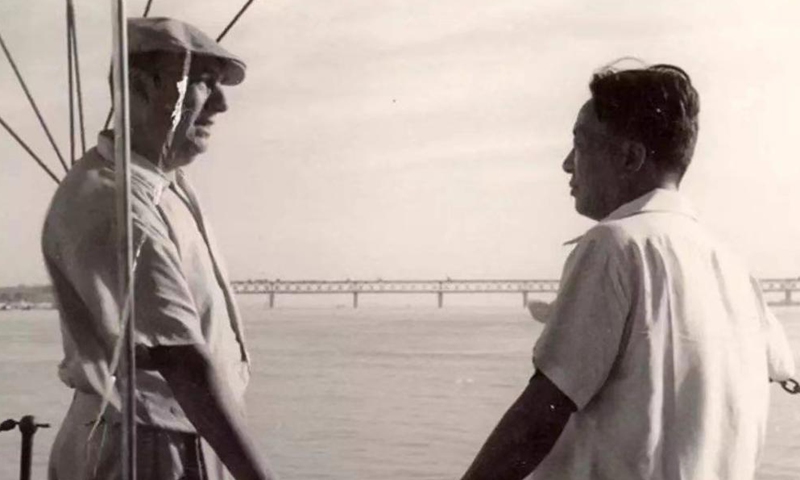
The poem was translated into Chinese and published in the seventh issue of China's most eminent poetry magazine, Shi Kan (Poetry Periodical), in 2024. In Acuna's verses, Li Bai sheds the image of a wine-loving bohemian and emerges as a profoundly solitary figure conversing with a lonely soul imbibing mezcal.
"Li Bai is very vital; his being is directly connected to the world. …In my case, the images in his poems take me back to the absence of what was once joy. The lake is a mirror of memory. Cicadas rustle before the emptiness of love. The wine is bitter, but it still warms the poet's heart," Acuna muses.
The legendary Tang poet inspired a new tale of friendship at the poetry gathering on Sept 20 at Beihai Park in Beijing.
There, poets wrote in their native languages and, after translation, exchanged their works by drawing from a box — Chinese poets selecting from Latin American poems and vice versa — before reading them aloud.
Acuna drew a poem titled Brothers and Sisters of the World — For My Poet Friends. It was by Chinese poet Wang Fangfang, who wrote:
My brothers and sisters
My ceramics are filled with the rain of the Andes
Qinqiang Opera resonates with the eagle flute
And a poet greets Li Bai in Quechua
Upon reading the poem, Acuna, brimming with excitement, presented Wang with the Poetry Periodical magazine containing his own work.
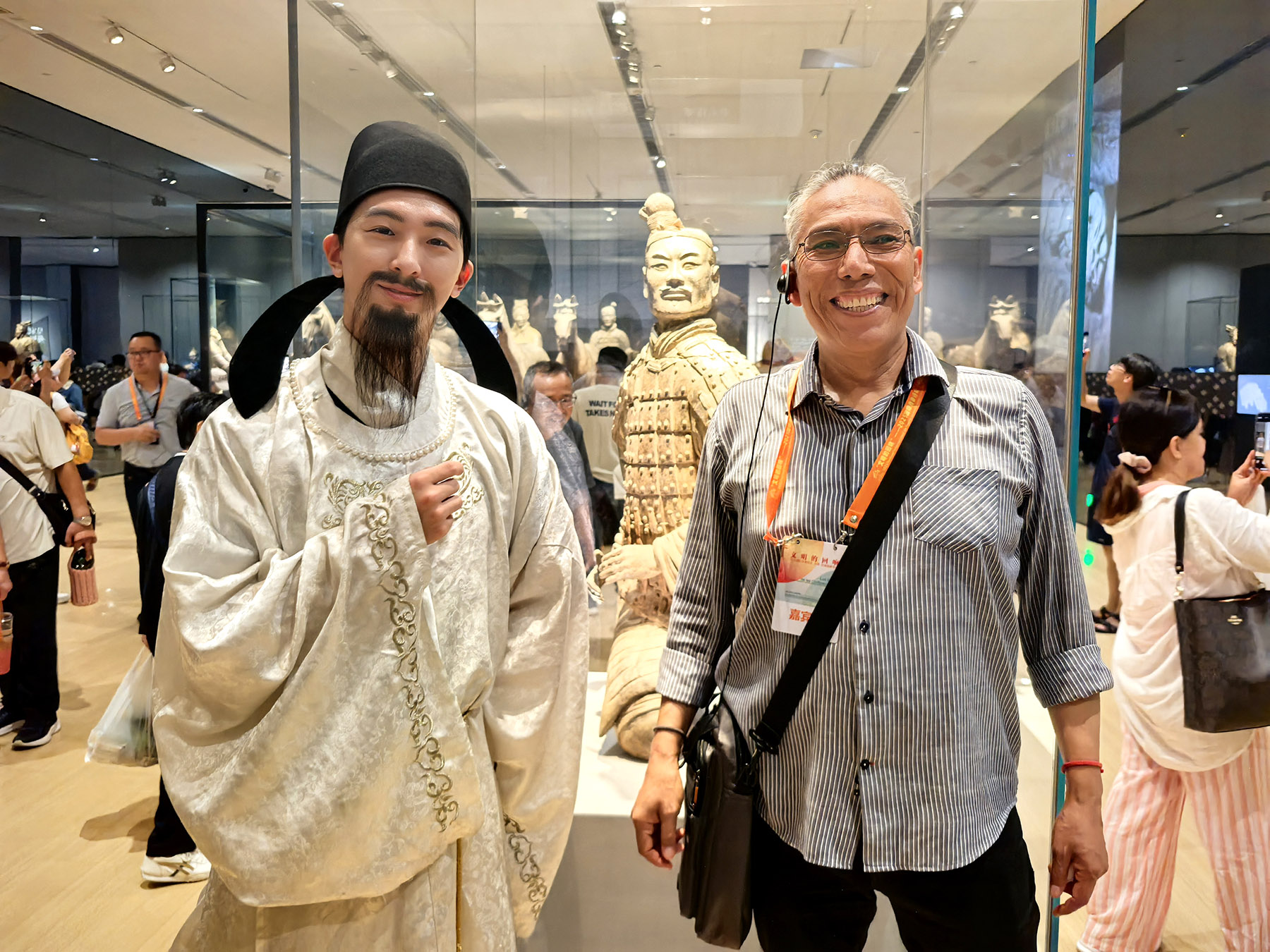
Wang later told China Daily that he was deeply struck by Acuna's line "I want to lock myself into Li Bai's long night", which strongly echoes his poem.
"At that moment, it was as if the great Tang poet had traveled through more than 1,000 years and become our shared confidant," Wang says.
"This coincidence and the gift are not only a testimony to literary exchange, but also a continuation of the friendship between the Chinese and Latin American peoples," he adds.
According to Li Zhen, a poetry critic and professor at Shaanxi Normal University, literary exchange between China and Latin America has a long and rich tradition.
One of the perfect examples, Li Zhen says, was the friendship between the renowned modern Chinese poet Ai Qing and the late Nobel Prize-winning Chilean poet and diplomat Pablo Neruda.
In his lifetime, Neruda visited China three times and left behind many timeless poems, such as Ode to New China and The Song of the Land of China, to express his admiration for the country.
In 1951, following his first visit to China in 1928, Neruda returned to the country and visited Beijing, where he befriended members of the Chinese literati, including novelist Mao Dun and poet Ai Qing.
Li Zhen says that Neruda liked Ai Qing a lot and described him as "charming" and a "prince of Chinese poets".
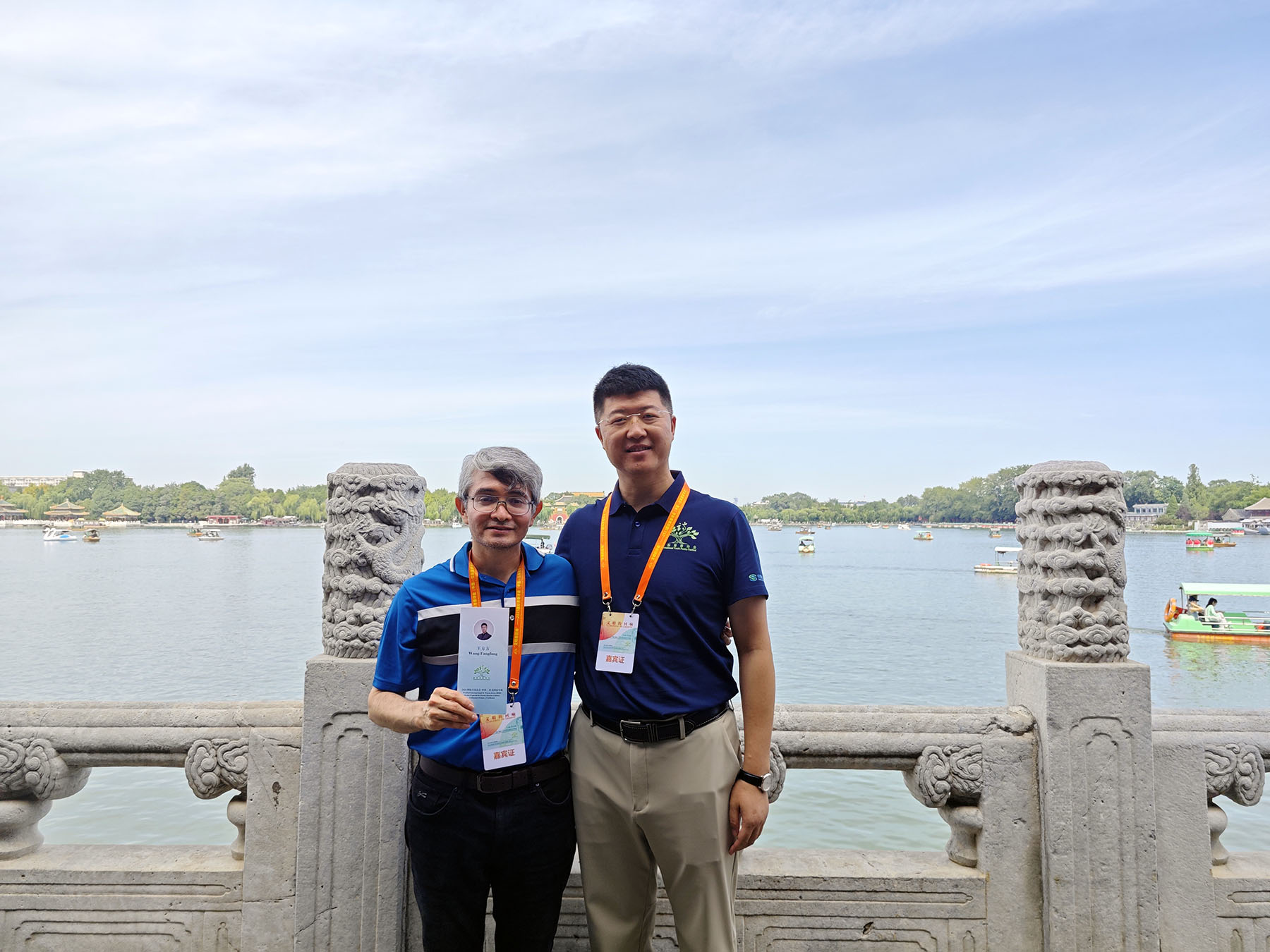
In the summer of 1954, Ai Qing traveled to Chile to attend Neruda's 50th birthday celebration.
"Ai Qing was suffering from writer's block, but the Pacific Ocean and the Chilean landscape gave him so much inspiration and spurred him to write the long, brilliant poem, On a Chilean Promontory, in tribute to the Chilean master," Li says.
Neruda's last visit to China was in 1957, and he spent his birthday on a cruise sailing along the Yangtze River. Ai Qing was the head of the Chinese delegation that guided him.
"It's exhilarating to see such an engaging exchange between Chinese and Latin American poets," Li Zhen remarks. "Even though we speak different languages, we are not much different when it comes to poetic thinking."
The critic also believes that such literary encounters provide poets with profound creative stimuli precisely because of the striking cultural differences shaped by the vast physical distance between China and Latin America.
The festival shows that, beyond Acuna, many Latin American poets — though separated by thousands of kilometers — share a deep connection with Chinese culture.
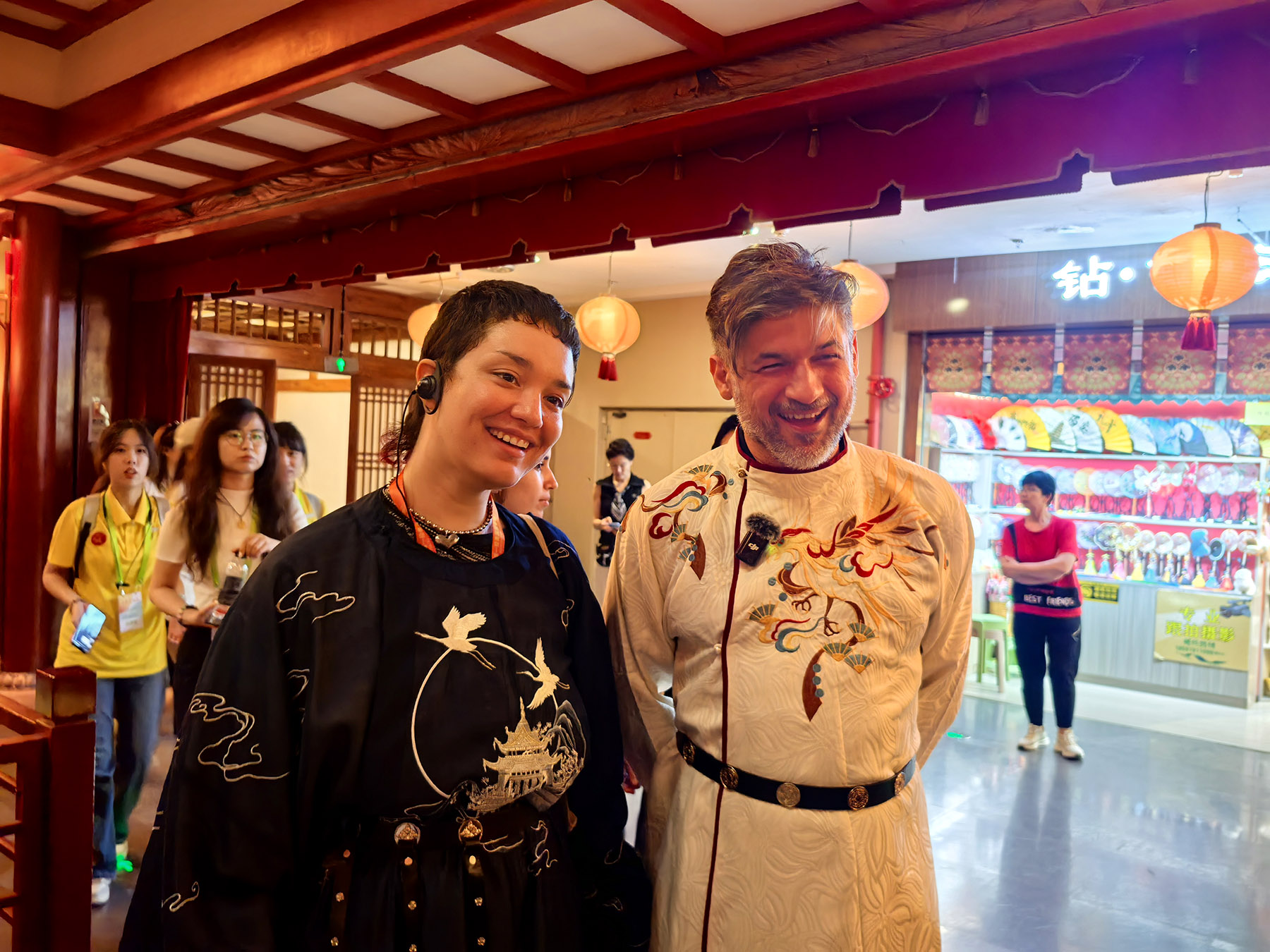
For example, Argentine poet and novelist Pablo Katchadjian revealed during a seminar held at the Qinling Mountains in Shangluo city, Shaanxi, on Sept 17 that he found intellectual nourishment in the Taoist classic Chuang Tzu (also known as The Book of Zhuangzi), which later guided him when he began practicing Wing Chun kung fu.
Katchadjian explained that martial arts had influenced his writing method: one should have a clear direction while remaining open to emerging possibilities, and even view obstacles as a kind of "hint of possibility".
Brazilian poet Ricardo Domeneck expresses similar inspiration. "I've always wanted to visit China because of Chinese poets Li Bai, Du Fu, Wang Wei and Lu Xun," he told this paper.
Domeneck notes that Chinese poetry values attention to detail and nature, and Chinese poets attempt to draw ethical or moral lessons from the way nature behaves.
ALSO READ: A rural success story
"I think we have a lot to learn from Chinese poetry in that sense of seeing ourselves as part of nature, especially nowadays when we try to separate ourselves from nature," he argues.
Both Acuna and Domeneck say that what they've seen and experienced in China has inspired them to write new poems, and they look forward to turning them into books.
At a symposium on Sept 20, Zhang Hongsen, chairman and Party secretary of the China Writers Association, emphasized that the poetry festival aims to put the Global Civilization Initiative into action, encourage mutual learning between civilizations, strengthen people-to-people bonds, and help build a community with a shared future for China and Latin America.
Yang Xiaoyu contributed to this story.


